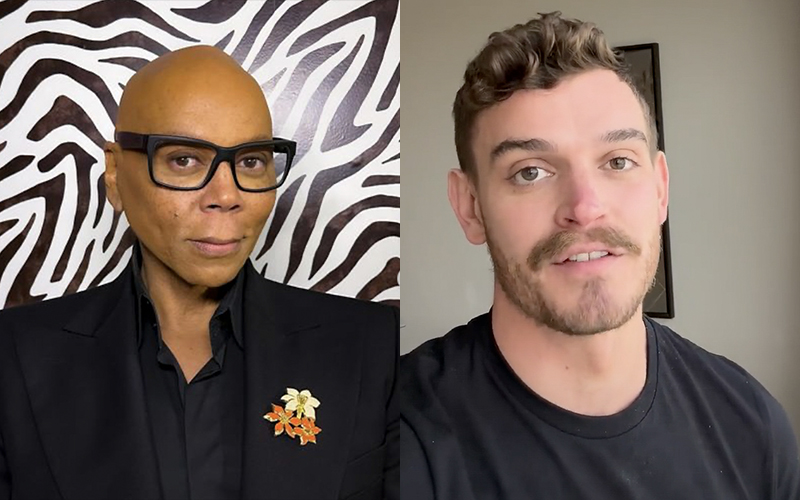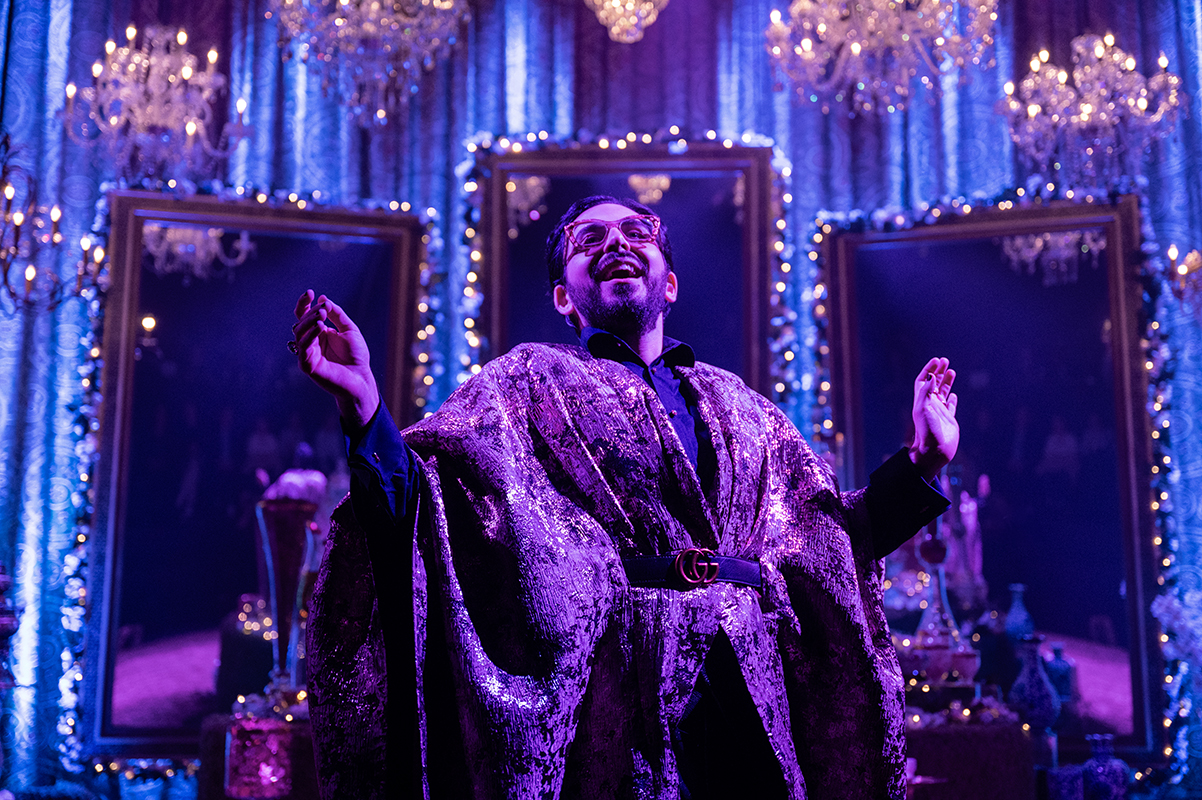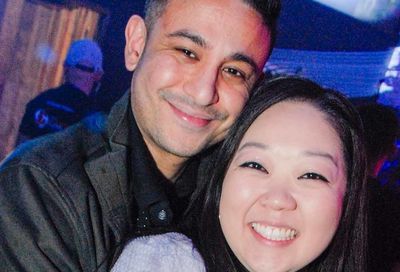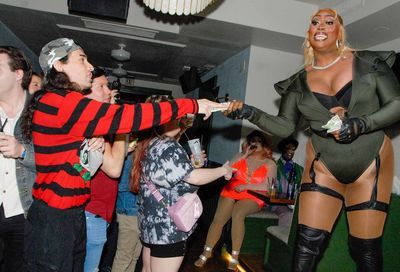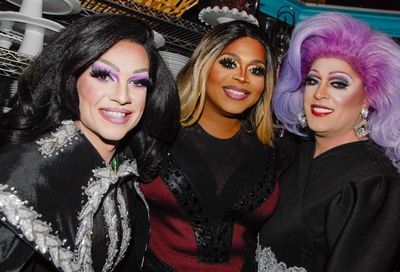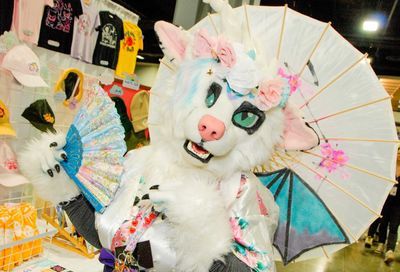Savage Intent
Dan Savage, media's gay enfant terrible, keeps pushing for a more just, sex-positive society
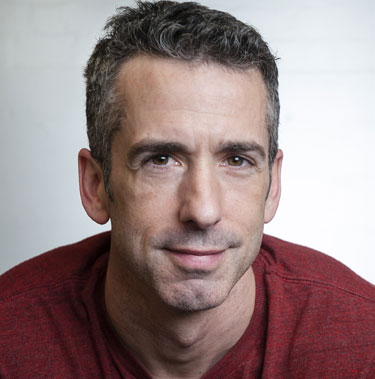
Dan Savage
(Photo by LaRae Lobdell)
MW: People being more willing to share experiences beyond monogamy in some sense seems like the next level of coming out.
SAVAGE: It is. There are many kinds of coming out. When somebody says, so-and-so came out, we all think of him coming out as gay, lesbian, bi or trans. We own the coming-out metaphor, the coming-out analogy.
But people are coming out about being pot smokers. People are coming out about being not monogamous. People are coming out about being kinky. We’ve created this model for changing the world, which was to tell the truth about who you are. We’ve shown that if all of the millions of oppressed people living in the shadows speak up all at once and tell the truth and come out, you can change the world. You can change how the world regards you. You can change your political place in the world. You can make society a safer, more welcoming place if collectively and en masse you fucking tell the truth. And I think you’re seeing that now with people who are in non-monogamous relationships, and with pot-smokers, with kinksters. You see more and more people speaking up and speaking out. And we blazed that trail for the pot-smoking, kinky, non-monogamous straight people.
MW: Growing up, did you ever think that this is where you would be in your life?
SAVAGE: I have a degree in theater. I wanted to do theater. In a way, I kind of get to do theater. My activism is kind of performance, and I think of my column as kind of a play. I do do theater here in Seattle. After I moved here, I did a lot of shows that were very successful. The plays I wrote and directed in Seattle, if I had done them in New York or Chicago, I would probably have a theater career. But I did them in Seattle, which is like, I don’t know, selling the best waffles in Antarctica — not that many people are going to get a taste. It’s just not a theater town.
MW: Let’s talk about the It Gets Better Project. Are you still involved?
SAVAGE: I know the guys and gals who run it. It’s a very simple and minimal operation. It is what it is and does what it does, which is to collect those videos and curate them, and make sure that the website is up and running and that LGBT kids who need to find their way to it, can. And Terry and I are still happy to be identified with it and involved with it, but the thing is a machine that goes on its own.
We just got a video very recently from NASA. An astronaut is talking to LGBT kids — gay people who work for NASA talking about working on the space program and being who they are and being able to work, and having the support of their colleagues. We didn’t solicit that video. We didn’t go to NASA and say, ”Hey, you got any astronauts? Any gay engineers who might want to make a video?” People are still stepping up and creating these videos. There’s still this forward momentum with it, and it’s still having an impact, and it’s still reaching LGBT kids.
The goal of the project wasn’t to collect a billion videos. The goal of the project was to speak to LGBT kids and help them. And it still continues to do that.
MW: I know you started it as a response to anti-gay bullying and suicides, to let people know that whatever struggles they’re having will pass, that it will get better. Do you ever worry that it might give people false hope?
SAVAGE: No, I don’t. I guess there should be an asterisk after ”It Gets Better”: ”Individual results may vary.”
I think people, even young LGBT kids, are smart enough to know that life isn’t a cakewalk. And the title of the project is It Gets Better, not ”It Gets Utopia” or ”It Gets Perfect.”
The most important way in which it gets better for LGBT kids, as you move into adulthood, is just having autonomy, having the ability to make your own choices, to make your own moves without family, preachers, teachers controlling every aspect of your life. Even if you do encounter ugliness or more struggles, you’re going to have more control. That control is itself a way in which it gets better.
Adult life isn’t a party, whether you’re gay or straight. Life is a struggle, and every life ends in usually some amount of pain, disease, disillusionment and death. Still, it’s better than high school. [Laughs.] Saying ”It gets better” to a bullied queer kid – living in the middle of nowhere in a community where he or she has no support, where their family is also bullying — that it’s going to get better than what you’re experiencing right now isn’t setting the bar too high. It isn’t filling them with false hope.
Most of the people who offer this line of criticism, they’re not watching the videos. A lot of the videos detail the challenges, the struggles about where people are now. I remember one video early on from this woman: ”I’ve been bullied, it was awful. I got out, I went to college, and I met my girlfriend who became my wife, and she just divorced me. And I’m devastated. But this is part of life. Love, then falling out of love, then divorce, and pain. Pain is part of life. And I’m able to experience this pain now, and I have people on my side. And my parents who rejected me when I came out as a lesbian have been wonderful and loving and here for me through this. So even in the midst of all this pain, I can still see evidence of how it is better.”
There are some of them where people are like, ”Rah-rah-rah, my life is awesome! 24 hours a day!” But that overstates it. If you watch the videos honestly, and without just a desire to shit all over the project, you’ll see people acknowledging that better doesn’t mean perfect.
MW: You had struggles with coming out in your Catholic family. Is your family supportive now?
SAVAGE: Oh, yeah. My family is hyper-supportive. My [late] mother gradually became ”P-FLAG supermom.” She said she didn’t want me to bring any boyfriends to the house, ever. She always thought, of all her kids, I was the one she wanted most to parent — though she was very happy with my other siblings parenting. And she was just really devastated that me [being gay] meant that I would never marry or have kids. And of course I’m married and I have a kid. It just took her some time to come around. But it also took me sticking up for myself for her to come around. It took me even at an early age saying, ”Laura can have her boyfriend over, I should be able to have my boyfriend over.”
MW: With work, raising a teenage son, how do you keep your relationship with Terry thriving?
SAVAGE: [Laughs.] I’ve always said that the only time you remembered why you liked your partner well enough to want to have kids with him in the first place is when you’re away from your kids together. It’s really important to get away for a weekend every now and then, to take advantage of your friends and family who are like, ”Oh, we’d be happy to babysit for a weekend if you guys want to go away.” Take advantage. Some parents feel guilty when they do that, as if they’re not being model parents. It’s worse for your children if you become so estranged from your partner due to the pressures of co-parenting that you fall out of love. Your kid wants his parents to stay in love, to stay connected, because you’re the world that they inhabit. If you fall apart, that’s not in the best interest of your child.
MW: How do you balance all of the work that you do?
SAVAGE: It helps that Terry is a stay-at-home parent. We’re really a unit. And as anyone who knows both of us will attest, he’s the smarter one and the bossier one of the two of us.
I work two or three full-time jobs. Part of what’s made that possible over the last 15 years and made it possible for me to write a book in the middle of doing everything else I do, is I don’t have to buy my own clothes or do my own laundry or cook my own food. Terry, conversely, doesn’t have to do his own dishes or clean his own bathroom. I take care of that.
MW: I know that The Kid was made into an off-Broadway musical. Have there been attempts to adapt your other books, or have you thought about putting your story on stage?
SAVAGE: [Laughs.] No. No, no, no. There’s no other plan right now to adapt stuff I’m working on or I’ve written. Just The Kid. I was flabbergasted when [librettist Michael Zam, musician Andy Monroe and lyricist Jack Lechner] approached me and wanted to do The Kid as a stage piece, as a musical. I literally sat through during the whole meeting going, ”I don’t think there’s a musical in this. But if you guys do, go for it. But I don’t see it.” But they found it in there, and they’ve produced a really kind of wonderful and moving piece.
I’m really excited to see the next iteration. They’re now re-working The Kid and they’re going to do a new production on the West Coast. I thought the music was great and the show has real potential. It’s only going to get better.
Dan Savage appears Saturday, Oct. 12, at 8 p.m., at Foundry United Methodist Church at 1500 16th St. NW. Tickets are $30. Call 202-518-9400 or visit washingtondcjcc.org.
”Savage Love” is syndicated locally every Thursday in the Washington City Paper.
Support Metro Weekly’s Journalism
These are challenging times for news organizations. And yet it’s crucial we stay active and provide vital resources and information to both our local readers and the world. So won’t you please take a moment and consider supporting Metro Weekly with a membership? For as little as $5 a month, you can help ensure Metro Weekly magazine and MetroWeekly.com remain free, viable resources as we provide the best, most diverse, culturally-resonant LGBTQ coverage in both the D.C. region and around the world. Memberships come with exclusive perks and discounts, your own personal digital delivery of each week’s magazine (and an archive), access to our Member's Lounge when it launches this fall, and exclusive members-only items like Metro Weekly Membership Mugs and Tote Bags! Check out all our membership levels here and please join us today!




